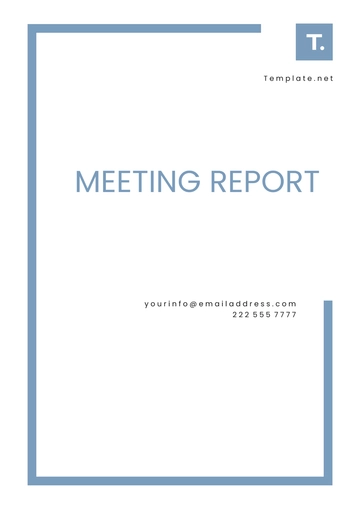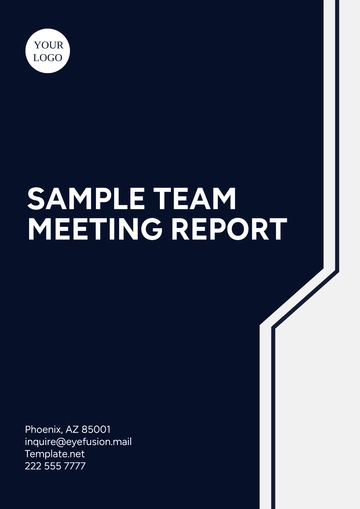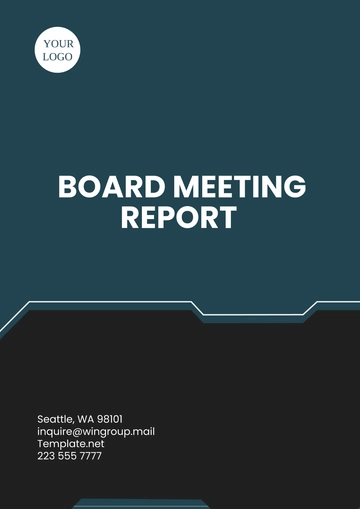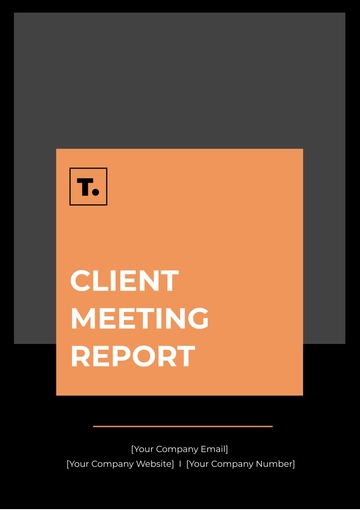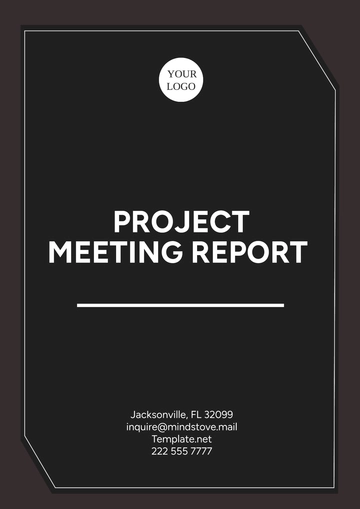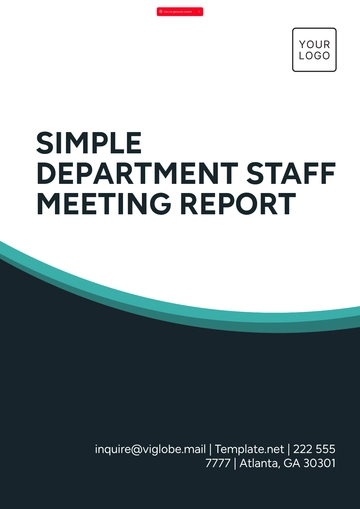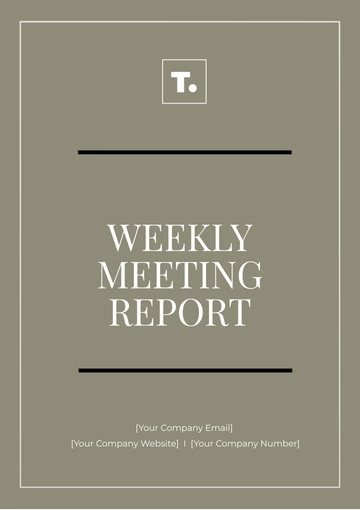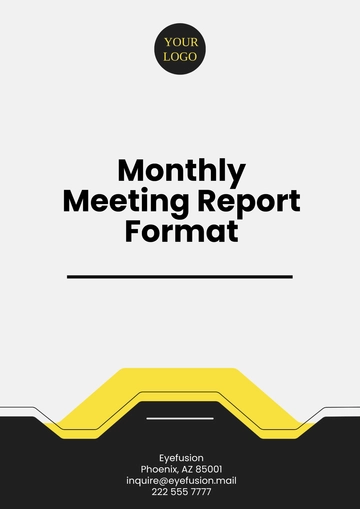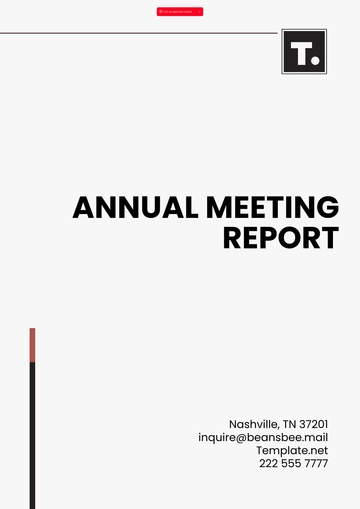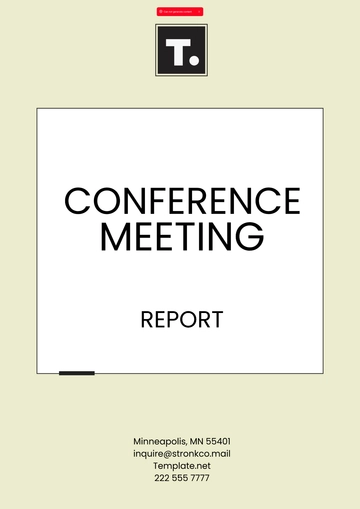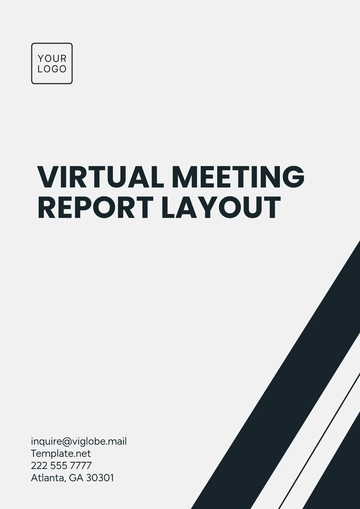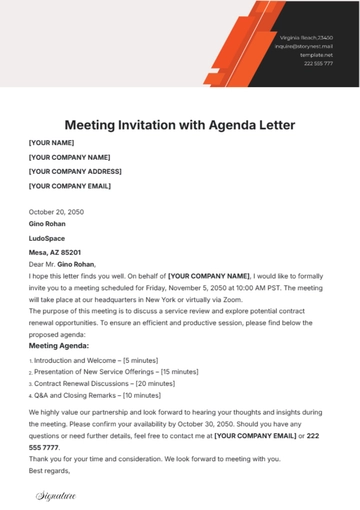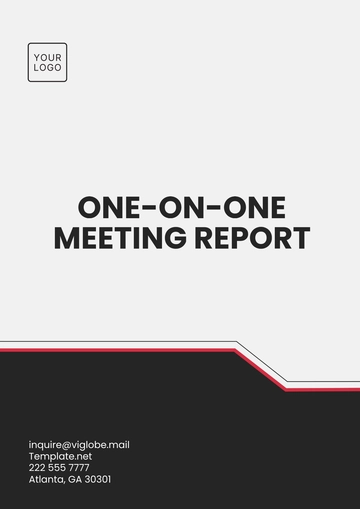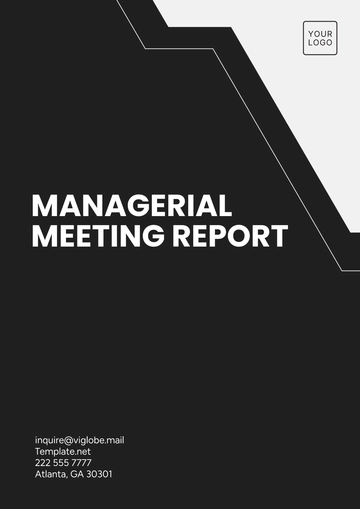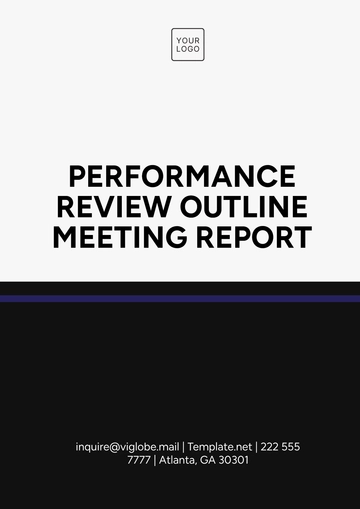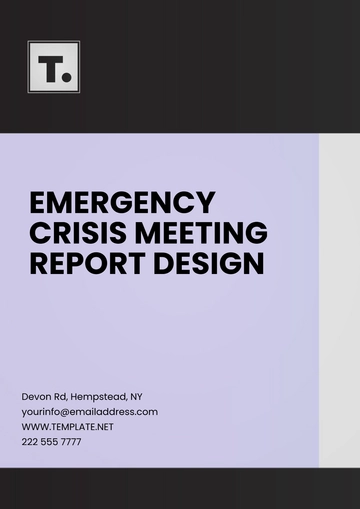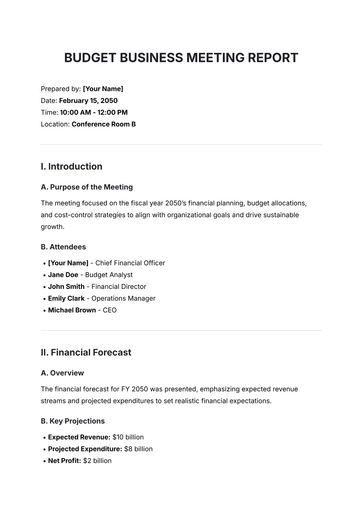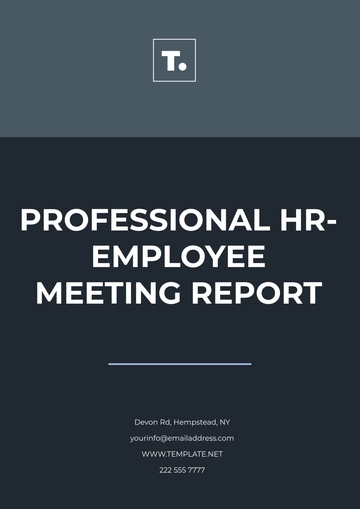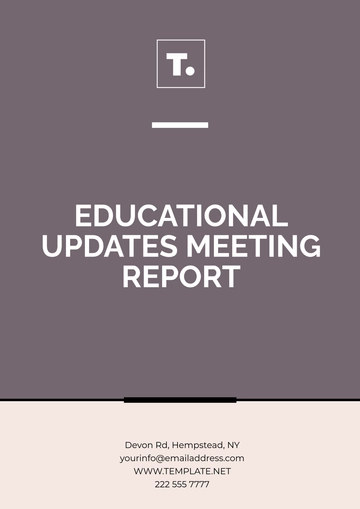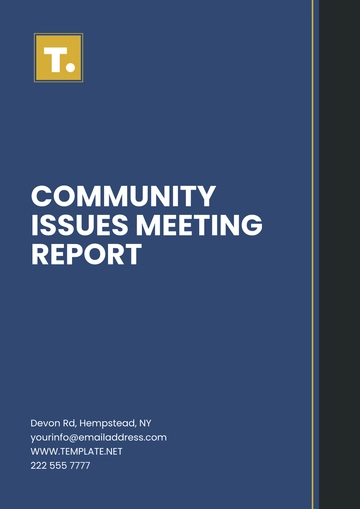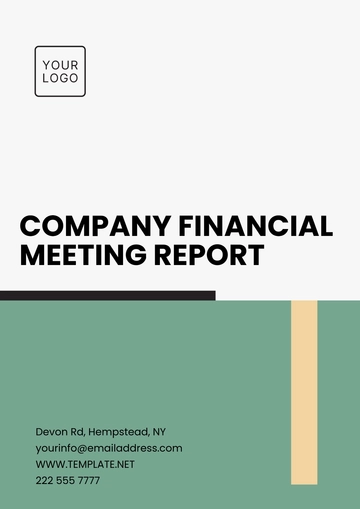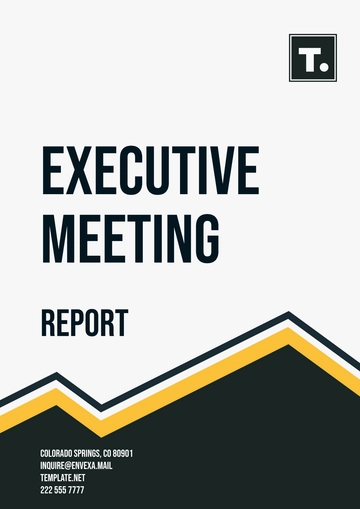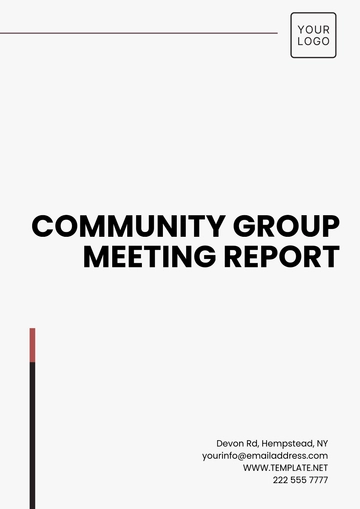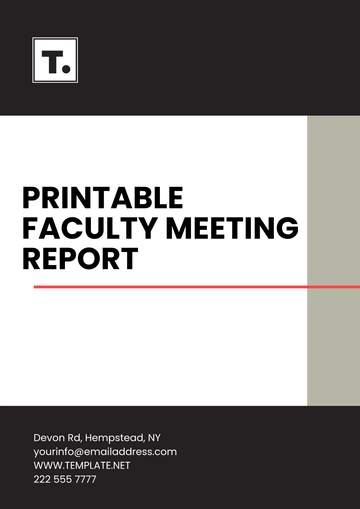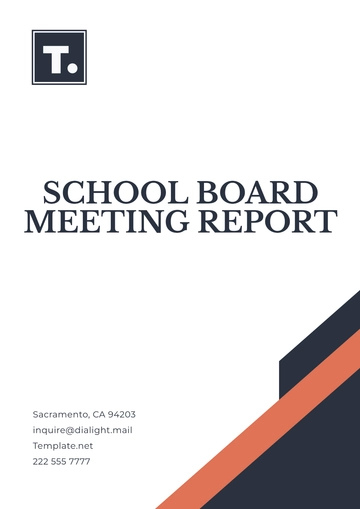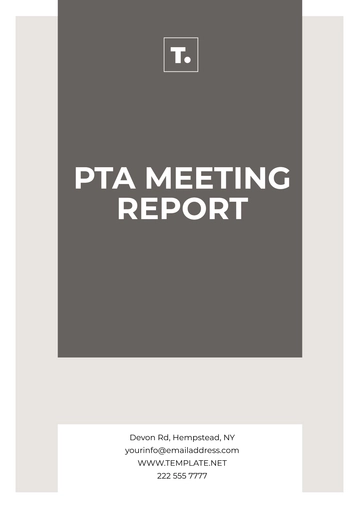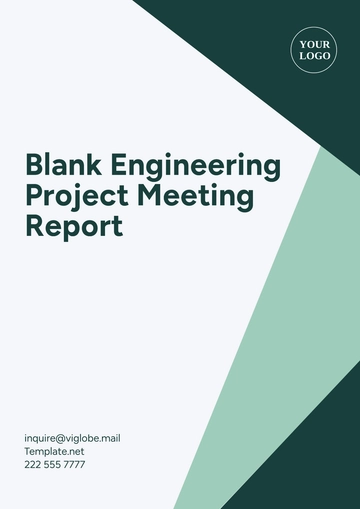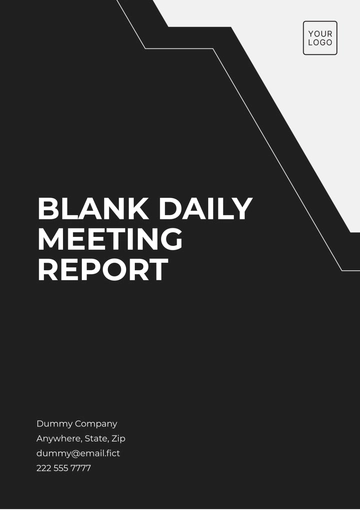Free Group Meeting Report
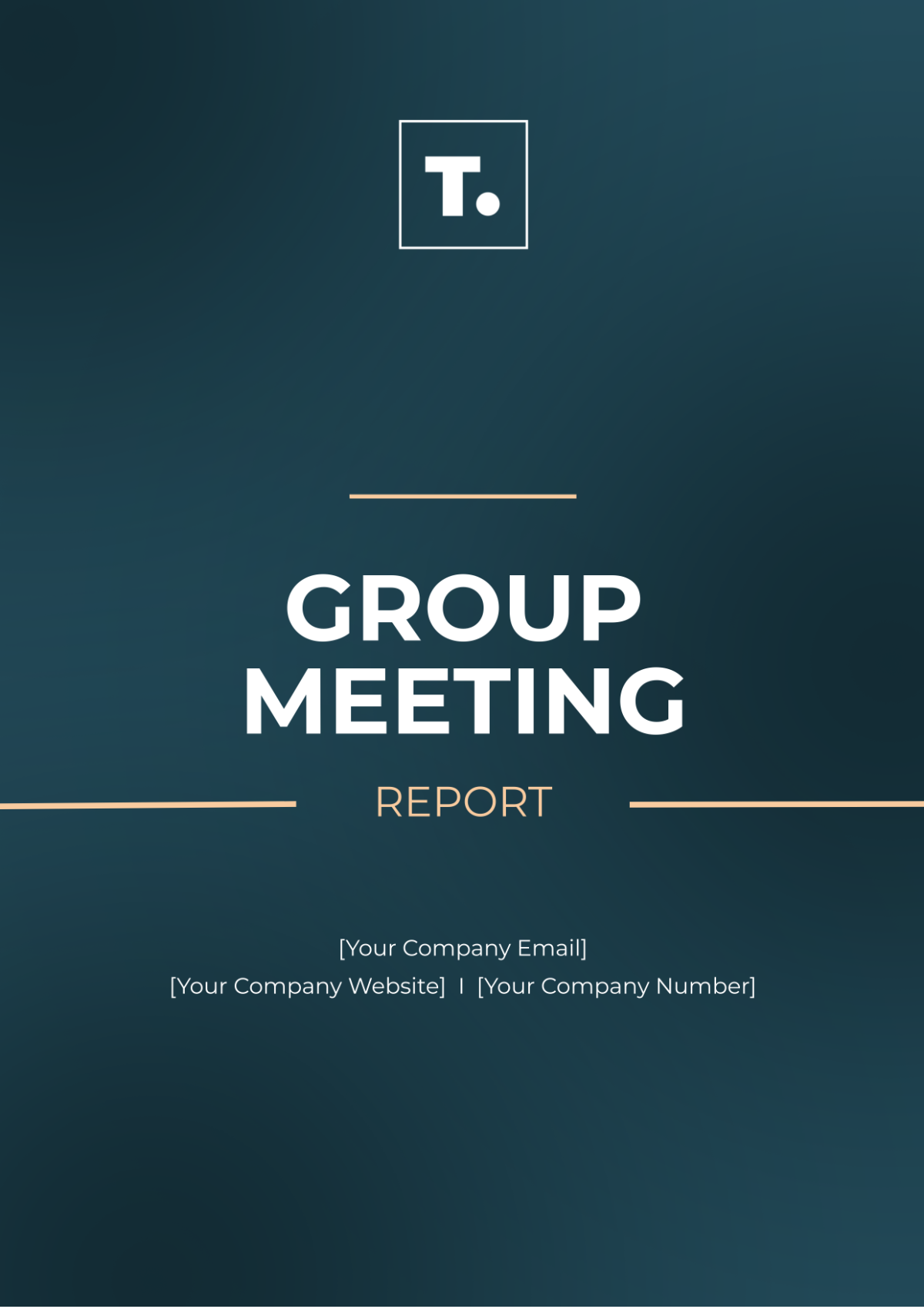
I. Introduction
This Group Meeting Report documents the proceedings of the meeting held on June 25, 2054, at Room 302, Main Building at Green Field University. The meeting was convened to discuss the current status of our research project focused on developing sustainable energy solutions for urban environments. The primary objectives were to review progress made thus far, identify and address technical challenges encountered, strategize on mitigating these challenges, and outline the next steps to ensure project success.
II. Meeting Details
Date: | June 25, 2054 |
|---|---|
Time: | 9:00 AM - 11:00 AM |
Location: | Green Field University |
Attendees: |
|
III. Agenda
Item No. | Agenda Item |
|---|---|
1 | Project Progress Update |
2 | Identification of Technical Challenges |
3 | Development of Mitigation Strategies |
4 | Next Steps |
IV. Discussion Summary
A. Project Progress Update
John Smith, as the group leader, provided a comprehensive update on the project's progress. He highlighted key milestones achieved, including the completion of the initial feasibility study and the successful commencement of data collection for the prototype. The team discussed the importance of maintaining momentum and adhering to project timelines.
B. Identification of Technical Challenges
The meeting focused extensively on identifying technical challenges, particularly regarding the integration of solar panel efficiency with battery storage systems. Sarah Johnson presented findings indicating fluctuations in energy conversion rates, especially during adverse weather conditions. This discussion underscored the need for innovative solutions to optimize system performance and reliability.
C. Development of Mitigation Strategies
Participants engaged in a proactive discussion to develop mitigation strategies for the identified technical challenges. Dr. Emily Brown emphasized the significance of conducting further simulations to refine system algorithms. The team agreed to collaborate closely with external experts specializing in battery technology to explore advanced solutions and potential partnerships.
V. Decisions Made
A. Actions Taken Regarding Project Progress
To accelerate progress, the team decided to allocate additional resources for prototype testing and data collection. Sarah Johnson was tasked with conducting further simulations to enhance energy conversion rates and provide detailed performance metrics by the next review meeting scheduled in July.
B. Actions Taken Regarding Technical Challenges
Michael Lee, leveraging his expertise as the technical advisor, was assigned to lead a task force dedicated to researching alternative battery technologies. The task force aims to identify viable options that offer improved efficiency and reliability under varying environmental conditions. Michael committed to presenting their findings and recommendations by the end of August 2054.
C. Next Steps
The team outlined clear next steps to maintain project momentum. John Smith, in his role as group leader, undertook to finalize the preliminary design phase by July 15, 2054. This includes preparing a detailed project plan for stakeholder review and incorporating feedback to refine project objectives and timelines.
VI. Action Items
Action Item | Assigned To | Deadline |
|---|---|---|
Conduct further simulations on energy conversion rates | Sarah Johnson | July 10, 2054 |
Research and evaluate alternative battery technologies | Michael Lee | August 30, 2054 |
Draft project plan for stakeholder review | John Smith | July 15, 2054 |
VII. Conclusion
In conclusion, the meeting was highly productive, fostering collaboration and innovation among team members. The decisions made and action items assigned are critical steps toward achieving our research goals in sustainable energy solutions. The team is committed to maintaining rigorous standards and addressing challenges proactively. The next meeting is scheduled for July 15, 2054, to review progress and adjust strategies as necessary.
- 100% Customizable, free editor
- Access 1 Million+ Templates, photo’s & graphics
- Download or share as a template
- Click and replace photos, graphics, text, backgrounds
- Resize, crop, AI write & more
- Access advanced editor
Streamline your meetings with the Group Meeting Report Template from Template.net. This fully customizable and editable template ensures comprehensive documentation of your discussions. Easily editable in our AI Editor Tool, it provides a seamless experience for creating professional reports tailored to your needs. Enhance your productivity with this versatile and user-friendly template.
You may also like
- Sales Report
- Daily Report
- Project Report
- Business Report
- Weekly Report
- Incident Report
- Annual Report
- Report Layout
- Report Design
- Progress Report
- Marketing Report
- Company Report
- Monthly Report
- Audit Report
- Status Report
- School Report
- Reports Hr
- Management Report
- Project Status Report
- Handover Report
- Health And Safety Report
- Restaurant Report
- Construction Report
- Research Report
- Evaluation Report
- Investigation Report
- Employee Report
- Advertising Report
- Weekly Status Report
- Project Management Report
- Finance Report
- Service Report
- Technical Report
- Meeting Report
- Quarterly Report
- Inspection Report
- Medical Report
- Test Report
- Summary Report
- Inventory Report
- Valuation Report
- Operations Report
- Payroll Report
- Training Report
- Job Report
- Case Report
- Performance Report
- Board Report
- Internal Audit Report
- Student Report
- Monthly Management Report
- Small Business Report
- Accident Report
- Call Center Report
- Activity Report
- IT and Software Report
- Internship Report
- Visit Report
- Product Report
- Book Report
- Property Report
- Recruitment Report
- University Report
- Event Report
- SEO Report
- Conference Report
- Narrative Report
- Nursing Home Report
- Preschool Report
- Call Report
- Customer Report
- Employee Incident Report
- Accomplishment Report
- Social Media Report
- Work From Home Report
- Security Report
- Damage Report
- Quality Report
- Internal Report
- Nurse Report
- Real Estate Report
- Hotel Report
- Equipment Report
- Credit Report
- Field Report
- Non Profit Report
- Maintenance Report
- News Report
- Survey Report
- Executive Report
- Law Firm Report
- Advertising Agency Report
- Interior Design Report
- Travel Agency Report
- Stock Report
- Salon Report
- Bug Report
- Workplace Report
- Action Report
- Investor Report
- Cleaning Services Report
- Consulting Report
- Freelancer Report
- Site Visit Report
- Trip Report
- Classroom Observation Report
- Vehicle Report
- Final Report
- Software Report
